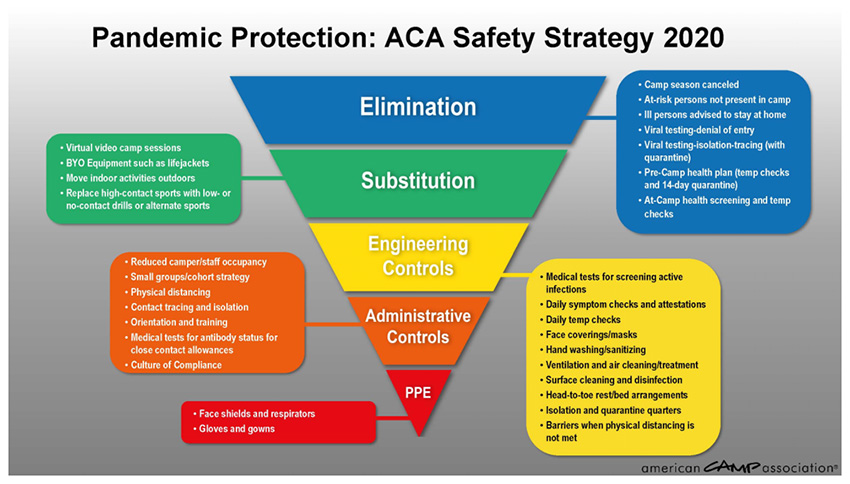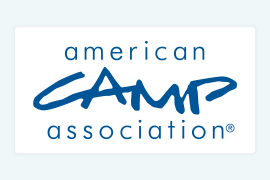Martinsville, IN—July 31, 2020 Today’s Centers for Disease Control & Prevention (CDC) study of a single summer camp’s Covid-19 infections tells an incomplete story. To better understand summer camp safety in 2020, start with a clear understanding that thousands of camps are successfully operating this summer.
"Camps are at the forefront of child safety during this pandemic," said Tom Rosenberg, American Camp Association chief executive officer. "When camps consistently use the innovative, multilayered safety strategy outlined in our Field Guide for Operating Camps in COVID-19, we see that many of them minimize infections as well as the spread of COVID-19. However, infections increase if people become lax or inconsistent. The most important safety layer is a culture of compliance."
The American Camp Association (ACA) engaged leading experts to develop educational resources for camps to run safe in-person programming for summer 2020. This included the Field Guide for Camps in COVID-19, developed by an independent and external expert panel of specialists in pediatric medicine, infectious disease management, biological safety, industrial hygiene, organizational design, and more.
The early released version of the CDC study, "SARS-CoV-2 Transmission and Infection Among Attendees of an Overnight Camp — Georgia, June 2020," only looked at what happened when a single camp did not implement all of the elements of the ACA Field Guide and the CDC’s guidance. "But more than 3,000 day and overnight camps are running in-person programming for children across the US this summer," shared Rosenberg. "We have so many success stories, from overnight camps who have not had a single infection, to day camps who have safely managed large groups of children every day, to virtual camps who made a profound difference for medically vulnerable children.
By the end of this summer, millions of kids will have benefited from positive and safe experiences at camps. The ACA can now answer:
- What have we learned that we can apply to kindergarten, to 12th grade, and after-school programs?
- What have been parents' top worries? How have camps met their concerns?
- As schools decide between in-person classes and virtual learning, what have camps discovered about the pros and cons of both formats?
- How will schools and extracurricular activities need to evolve to help pandemic kids?
- What sort of programming best counteracts the social, emotional, and physical damage to these "pandemic children"?
- The evolution of children: 9/11 kids, to digital Gen-Zers, to COVID kids
- Looking ahead to Camp 2021 — what should we expect?
The ACA serves as a leading voice for child development and will soon have significant data to share. This summer, ACA launched several landmark studies to better understand the impact of COVID-19 on children, families, and camps. Study findings will be available later this fall.
"Perhaps the most important story of Camp 2020 is the least-reported story," said Rosenberg. "Camp directors reported that many children arrived feeling anxious, out of shape, or disconnected. They desperately sought — and ultimately found — the belonging, independence, and resilience they have needed for months. If schools are going to be successful this fall, they must act on what we’ve learned at camp this summer."

About American Camp Association
The American Camp Association® (ACA) is a national organization with more than 12,000 individual members and 3,100 member camps. ACA is committed to collaborating with those who believe in quality camp and outdoor experiences for children, youth, and adults. ACA provides advocacy, evidence-based education, and professional development, and is the only independent national accrediting body for the organized camp experience. ACA accredits approximately 2,400 diverse US camps. ACA Accreditation provides public evidence of a camp’s voluntary commitment to the health, safety, and overall well-being of campers and staff. For more information, visit ACAcamps.org or call 800-428-2267.




